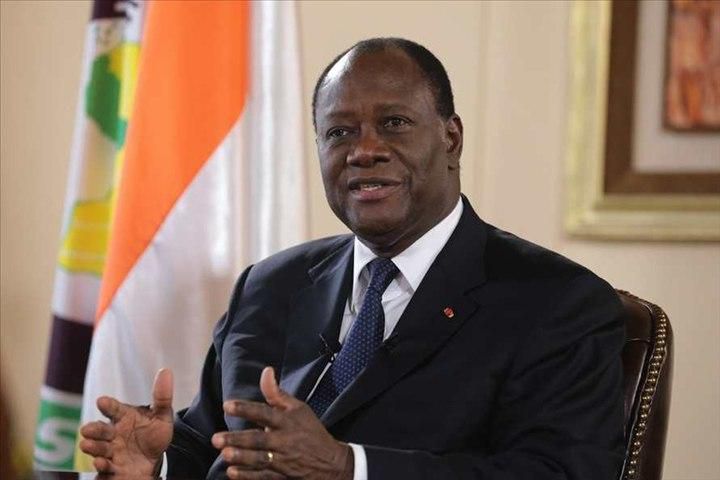Côte d'Ivoire Votes amid Tensions over Contested Election: All You Need to Know
)
Côte d'Ivoire heads to the polls today, Saturday, October 25, in a presidential election clouded by controversy and tension. Incumbent President Alassane Ouattara seeks to extend his nearly two-decade rule amid constitutional disputes and the exclusion of key opposition figures.
A Contested Race
)
An estimated 8.7 million registered voters are casting their ballots across the West African nation, with polling stations opening shortly after 8:00 a.m. GMT despite minor delays. The election features five candidates, though 83-year-old Ouattara is widely seen as the frontrunner in what observers describe as a race lacking genuine political competition.
The other four contenders include Jean-Louis Billon, heir to Côte d'Ivoire’s largest private employer; Henriette Lagou, who secured less than 1% of votes in the 2015 election; Ahoua Don Mello; and Simone Ehivet Gbagbo, the former first lady. However, the absence of the country’s most prominent opposition figures has cast serious doubt on the democratic credibility of the vote.
The Exclusion Crisis
)
The election has been overshadowed by controversy following the disqualification of several influential political figures. Tidjane Thiam, the former CEO of Credit Suisse who returned to Côte d'Ivoire with presidential ambitions, was barred from contesting. Similarly, former President Laurent Gbagbo, who retains considerable political support, was excluded from the race.
These exclusions have not only weakened political competition but have also deepened grievances among opposition supporters. Analysts argue that the restrictions have eroded public trust and undermined the fairness of what should be a democratic contest.
Constitutional Controversy
)
At the heart of the legitimacy crisis is a dispute over presidential term limits. Côte d'Ivoire’s constitution limits presidents to two terms. However, Ouattara insists that constitutional reforms introduced in 2016 effectively reset his term count, allowing him to seek what amounts to a fourth consecutive mandate.
This argument has angered opposition groups and many citizens who view it as an attempt to weaken democratic safeguards meant to prevent excessive concentration of power. The situation mirrors similar constitutional disputes elsewhere in Africa, where long-serving leaders have used amendments to extend their rule.
ALSO READ: Can Your Landlord Frustrate You Into Leaving Your Home? Here’s What Ghana’s Rent Law Says
Pre-Election Violence and Repression

The lead-up to today’s vote was marked by unrest and widespread protests over the exclusion of candidates. Security forces responded forcefully to demonstrations, arresting hundreds of protesters. By midweek, 58 people had been sentenced to 36-month prison terms for participating in the protests. Human rights groups have condemned the actions as attempts to stifle dissent and intimidate the opposition ahead of the polls.
Authorities have deployed more than 40,000 security personnel nationwide to maintain order at polling stations. However, political observers warn that tensions remain high, raising concerns of possible clashes as results begin to trickle in.
A Nation Still Healing
Côte d'Ivoire continues to bear the scars of its troubled political past. The 2010 presidential election plunged the nation into a brief but deadly civil war that claimed around 3,000 lives after then-President Gbagbo refused to concede defeat to Ouattara. The violence left deep divisions in Ivorian society and served as a stark reminder of how swiftly electoral disputes can escalate.
For many Ivorians, today’s election rekindles fears of renewed instability. The combination of constitutional controversy, political repression, and exclusion of major candidates has heightened anxiety in a country that has spent the past fifteen (15) years rebuilding its economy and international reputation.
ALSO READ: Top 10 African Passports with the Most Visa-Free Destinations: October 2025 Power Rankings
Economic Growth, Democratic Decline
Under Ouattara’s leadership, Côte d'Ivoire has experienced strong economic growth, becoming one of West Africa’s largest economies and the world’s top cocoa producer. Infrastructure has improved, foreign investment has increased, and the nation has re-emerged as a regional economic hub.
Yet critics argue that these achievements have come at the expense of democratic progress. The shrinking of political space, exclusion of credible challengers, and manipulation of constitutional limits have led to growing concerns about democratic decline in a country once seen as a model of post-conflict recovery.
What Lies Ahead
)
As voting continues and counting begins, the international community is closely monitoring the situation. Few expect a surprise outcome, with most analysts predicting an Ouattara victory. However, the greater test lies in whether Ivorians accept the results and whether the government can manage potential unrest in the aftermath.
)
)
)

)
)
)
)
)
)
)
)
,fit(112:112))